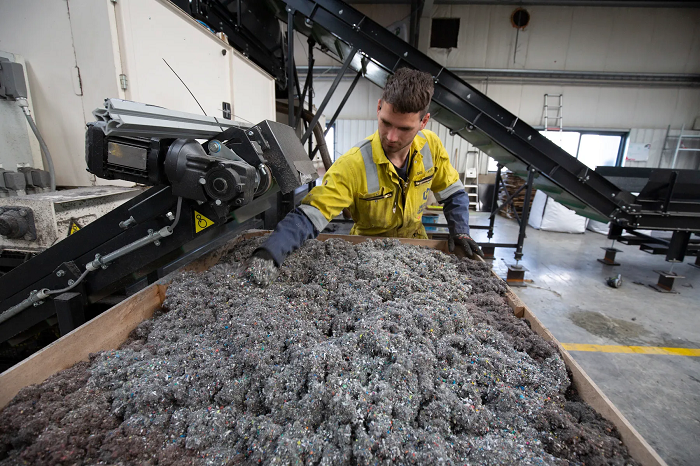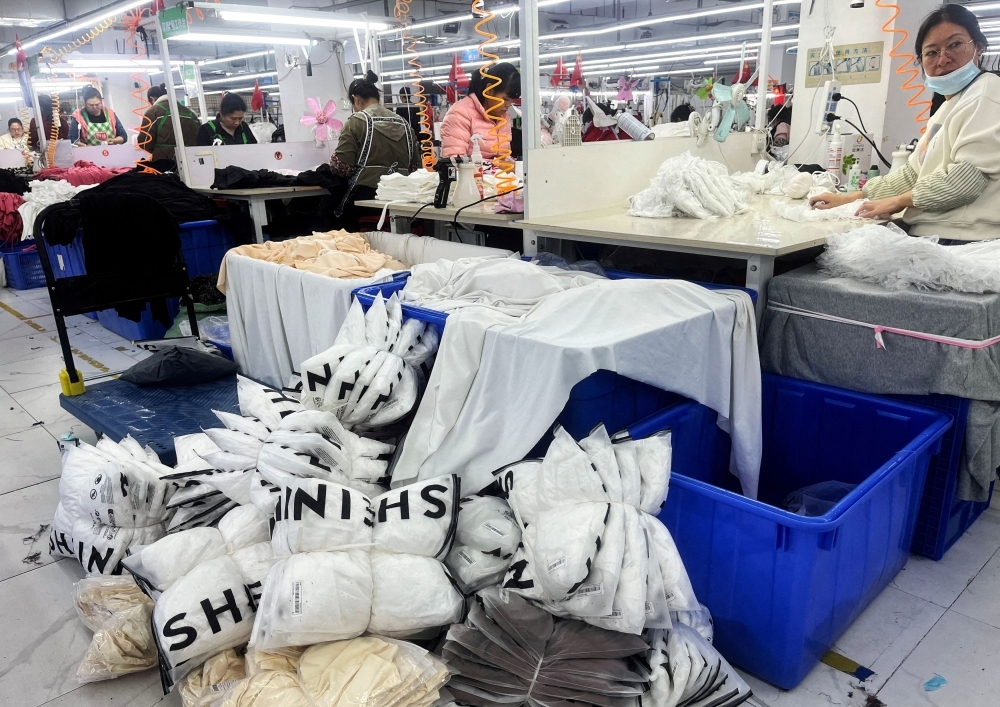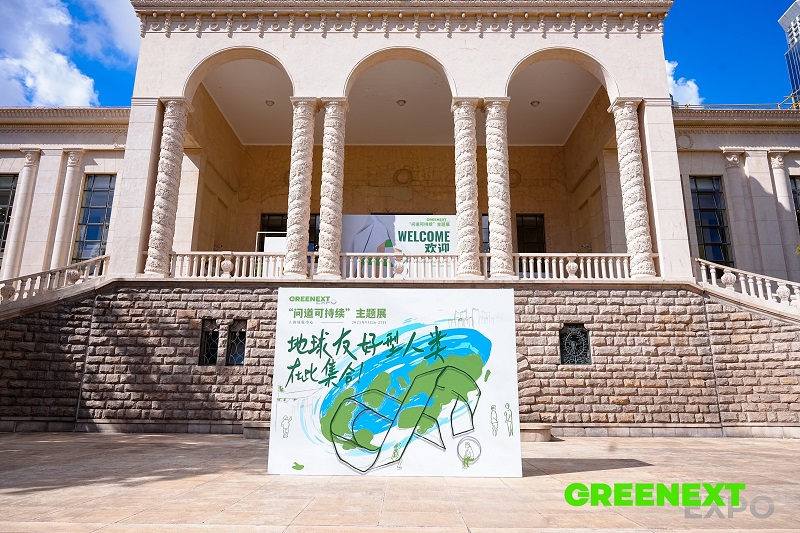FW
The Italian fashion powerhouse Benetton has undertaken a sweeping corporate reorganization aimed at optimizing its relaunch and achieving profitability by 2026 or 2027. This reorganization marks the end of the first phase of the plan led by new Claudio Sforza, CEO who took over in June 2024.
According to internal documents cited by Italian financial daily MF-Milano Finanza, Benetton established seven new companies - or ‘newcos’ - all based at its Castrette corporate hub. Following a complex double demerger and spin-off operation, the group's assets and corporate functions have been divided among these entities, which will become operational in January.
The core company, Benetton Group, is now the coordinating holding company, retaining final authority over financial, legal, and auditing decisions. It directly controls five new operational units: Green 347, Benetton Operations, Benetton Distribution, Benetton Logistics, and Benetton E-commerce.
Under the group has jettisoned its traditional vertically integrated business model through significant operational changes including closing of production sites in Tunisia, Serbia and Croatia, reduction in global employee count from 1,100 in mid-2024 to approximately 700 by the end of 2025, aided by voluntary separation incentives and shutting of approximately 500 unprofitable stores worldwide, bringing the group’s total retail network to nearly 3,000 locations.
The reorganization assigns clear functions to the new leadership: Benetton Operations (led by Vincenzo Meles) handles design and marketing; Benetton Distribution (Nicola Capone) oversees retail and franchising; and Benetton E-commerce manages online sales.
The goal of this reorganization is aggressive loss reduction; after cutting losses by more than 57 per cent to €100 million in 2024, Benetton aims to return to profit within the next two years - a pivotal moment as the brand prepares to celebrate its 60th anniversary in 2025.
A complete system supplier known for its leading technologies in continuous wet processing, discontinuous dyeing, and technical textiles, Benninger is set to showcase its latest innovations at ITMA Asia + CITME 2025. Headlining their presentation will be the brand-new SingeRay singeing machine, specifically engineered for knitwear, alongside proven solutions from their extensive portfolio.
The Benninger SingeRay offers knitwear manufacturers a superior method for fabric upgrading, effectively eliminating the need for biopolishing. Singeing is a highly precise process that removes only the unwanted short fibers. Compared to biopolishing, the resulting weight loss is significantly lower, which increases the amount of input converted into saleable fabric and reduces the overall environmental footprint.
The SingeRay is built for efficiency and high output, boasting a production capacity of up to 30 tons per day. It is equipped with two burners and advanced silicon carbide burning chambers that ensure complete gas combustion at a constant temperature, supported by four cooling channels. The adjustable flame width further guarantees low gas consumption. Furthermore, dust is safely managed and separated using a wet deduster.
Benninger will also highlight key advancements across its dyeing machinery. The company has developed the fastest, most versatile, and most economical jet dyeing machine in the industry, the FabricMaster, which dramatically shortens process times. Engineered with a passion for perfect fabric quality, the FabricMaster allows for the production of the widest range of fabrics at the lowest cost while achieving unmatched water consumption levels. This system represents a breakthrough in discontinuous dyeing, combining outstanding features for safe fabric transport, smooth liquor transfer, high rope speeds, and shorter cycle times.
The cold pad batch (CPB) dyeing process is the only method that allows for salt-free dyeing without additional energy input, making it increasingly popular, especially in tropical and subtropical regions. Benninger has optimized its CPB systems for these climatic conditions, with the Benninger Küsters DyePad at its core.
Benninger is the only textile machinery manufacturer with expertise in the original S-roller technology, which is critical for ensuring consistently even dyeing across the entire fabric width. The CPB system's key advantages—including flexibility, dramatically improved accessibility for the new knit version, high reproducibility, and ease of operation—make it a trusted, low-investment solution for the full spectrum of open-width dyeing with reactive dyestuffs.

In the intricate, interconnected world of global apparel, tariffs are not just a line item on an invoice—they are, in the words of Cem Altan, "killers of the industry." The President of the International Apparel Federation (IAF), speaking exclusively with FashionatingWorld, delivered a stark warning about the rising tide of protectionist trade policies and their destabilizing effects on the global supply chain.
For Altan, the ideal of "free, open" global trade is a fundamental principle being eroded by the unpredictable, unilateral actions of governments. This isn't a new phenomenon. Historically, U.S. trade policy has swung between protectionism and liberalization, with periods like the Smoot-Hawley Tariff Act of 1930 that epitomized trade restriction. The current policies, particularly recent U.S. tariff announcements, have been implemented "too quickly without negotiating" and with little warning, leading to a climate of crippling uncertainty that makes long-term planning impossible for suppliers.
The human cost of uncertainty
"This is the biggest problem, uncertainty," Altan emphasized. The apparel and textile industry, with its razor-thin margins and intense competition, requires continuous investment to keep up with rapid changes in digitalization and regulation. When suppliers cannot see what the future holds, they hesitate to invest, a delay that ultimately hurts the entire supply chain.
The consequences, Altan noted, are far-reaching and deeply human. As manufacturers are squeezed by high tariffs and an inability to invest, they are forced to make difficult decisions. The financial pressure from brands, who do not want to absorb the new costs, is often passed down to suppliers. Without any "room to give them any more discount," manufacturers are left in a holding pattern. This waiting game leads to a devastating outcome: job losses. "Millions of millions of workers and companies lay out of work," Altan lamented, highlighting how political decisions can cripple the economies of entire countries.
The ‘Paradox of Protectionism’
Ironically, while these tariffs are intended to protect domestic industries, they are not having the desired effect on all fronts. Altan offered a paradoxical observation: while the U.S. has engaged in a trade war with China, the Chinese industry is proving to be exceptionally resilient. "China is very smart," Altan noted. Instead of losing business, Chinese companies are simply diversifying their production to other countries that have more favorable trade agreements, such as Cambodia, Vietnam, and ASEAN countries.
"Sustainable Terms of Trade Initiative" (STTI): A a crucial tool to protect manufacturers
In this volatile environment, Altan stresses the vital role of the IAF. He highlighted the organization's "Sustainable Terms of Trade Initiative" (STTI) as a crucial tool for protecting manufacturers. This initiative seeks to establish clear, fair contractual terms that prevent brands from abruptly canceling orders or reducing prices. By pushing for international regulations and educating its members, the IAF is fighting to bring a semblance of stability to an industry plagued by political whims.
The interview made it clear that tariffs are not just an economic issue; they are a human issue. They create instability, hinder innovation, and lead to job losses, all while failing to fully achieve their stated protectionist goals. For Cem Altan, the message is simple: a healthy global fashion industry requires collaboration, not confrontation, and a commitment to free and open trade that benefits everyone.
American denim and lifestyle brand Wrangler has launched a new headwear collection through a multi-year licensing agreement with headwear innovation lab, CapX.
A part of Wrangler's strategic effort to evolve into a broader cross-category lifestyle brand, the agreement leverages CapX's advanced design and manufacturing capabilities. The first collection is set to be launched this month
The collection is being designed to reflect Wrangler's denim heritage. It features distinctive elements such as the iconic 'W' stitching, copper hardware, and leather patches sourced from the same suppliers used for their jeans.
Each of the caps in this collection features a model number printed inside the lining. This number corresponds to one of over 45 standardized shapes developed by CapX, aiming to educate consumers on specific fit and structure and make it easier for them to find similar styles they love in the future.
The collection is designed to complement the lifestyle of the core Wrangler consumer - one who values quality, comfort, and character in their everyday essentials.
Viewing headwear Wrangler sees a significant opportunity to reach a broader audience in new ways. The company blends their long history of American style with CapX's innovation and standardized approach to fit.
The winners of the ITMF Start-up Awards 2025 will showcase their innovative business models at the upcoming ITMF & IAF Conference 2025. The conference will be held from October 24–25 in Yogyakarta, Indonesia, and co-hosted by the Indonesia Textile Industry Association (API).
The ITMF Start-up Awards aim to give emerging companies a platform to present their groundbreaking ideas and offer them the chance to meet in person with established players from across the entire textile value chain.
The five winners of the ITMF Start-up Award 2025 include Ambercycle (US), aweXome Ray (Korea), Byborre (Netherlands), Silana (Austria) and ZymoChem (US).
Global leader in sustainable technologies for the textile industry, Jeanologia will showcase its new denim collection titled, ‘Mediterranean Soul’ during a press tour tour at Kingpins Amsterdam.
The collection blends Mediterranean inspiration, creativity, and sustainability to showcase the future of denim.
The press tour will showcase how the combination of Laser and G2 Indra technologies enables hyper realistic finishes while protecting the planet and workers. It will also highlight the eDesigner platform, which connects digital design to real production, accelerating processes and reducing the need for physical samples.
The press tour will include live demonstrations, as well as opportunities to interview Jeanologia’s representatives.'
Global initiative dedicated to accelerating the use of post-consumer recycled cotton (POCR), Denim Deal will launch three new collections at this year’s edition of Kingpins Amsterdam. These collections prove, circular denim isn't just a goal but is ready to wear, ready to scale, and designed for every brand to easily adopt.
The new initiative, called The Denim Deal Collection: Designed to Simplify. Built to Prove., moves beyond simply showcasing members to actively co-creating ready-to-use collections. It includes the EMEA Hub Collection comprising nineteen garments, developed with partners including Dorlet, Sharabati, Kipas, Ereks Blue Matters, and PDNA. These garments highlight high-quality circular denim with a focus on cutting-edge design and full traceability.
The collection features removable branded buttons by Dorlet, fully integrated green production by Ereks, and PDNA’s platform, which verifies supply chain data and links it directly to each garment through a Digital Product Passport (DPP). This collection is a clear blueprint for making circularity visible and wearable.
Twp separate collections spearheaded by the Denim Deal India Hub will be launched integrating digital product passports, Product Environmental Footprint (PEF) powered by Green Story, POCR cotton, and advanced green wash technology.
Produced by Raymond UCO, the first collection will be featured at Kingpins while the second collection, produced by Bhaskar Denim, will be unveiled during their week-long Denim Deal show.
Both collections, created by Recyclr in collaboration with Jeanologia and Green Story, showcase the power of global hubs to create scalable, tailored solutions across different regions.
Both these collections provide brands with ready-made compliance solutions, and demonstrate what the entire denim ecosystem can achieve when it collaborates.
The Denim Deal plans to continue launching new collections showcasing different members, innovations, and increasing complexity, aiming for their ambitious goal: one billion pairs of jeans made with at least 20 per cent post-consumer recycled cotton by 2030. Brands ready to skip the complexity and scale circularity are invited to join now.
Spanish fashion giant Mango is reinforcing its UK retail network by opening 120 new seasonal roles across nearly 60 stores nationwide, preparing for the upcoming festive rush.
The brand is actively recruiting Sales Assistants to join its teams between October and December. This seasonal drive aims to strengthen the in-store experience during one of the busiest shopping periods of the year.
Successful applicants will receive a competitive salary alongside a robust benefits package, including a 35 per cent staff discount on all Mango garments and accessories, a seasonal uniform from the latest collections and an access to the brand’s Employee Assistance Program.
Each of these roles offers significant learning and development opportunities, such as training courses, mentoring, and the potential to transition into full-time or international positions within the company.
Fiona Cullen, International Regional Director - UK & Ireland, highlights, these roles offer valuable experience, great benefits, and the chance to be part of a global fashion brand at an exciting time of growth.
This recruitment push is tied to Mango's broader 2024-2026 4Es Strategic Plan, which focuses on driving UK sales and store expansion. The retailer currently operates over 80 points of sale in the UK and plans to open 20 new stores in 2025.
The brand recently opened a 5,300 sq ft 'New Med' concept store at St David’s Dewi Sant Shopping Centre in Cardiff and plans to launch a 7,104 sq ft flagship store at Festival Place shopping center in Basingstoke later this year.
This strategic investment follows a strong performance, with the retailer reporting a global turnover of €1.73 billion in H1, FY25, a 12 per cent Y-o-Y increase.
Australian clean technology company specializing in textile recycling, BlockTexx has entered into a strategic partnership with Asia Pacific Fibers (APF), an integrated polyester manufacturer based in Indonesia.
This collaboration is focused on developing and supplying textile-to-textile recycled polyester filament yarn solutions for the global apparel and fashion sectors.
BlockTexx uses its patented SOFT (Separation of Fibre Technology) process to chemically separate and recover polyester and cellulose from blended textile waste (like poly-cotton garments). The recovered polyester is marketed as PolyTexx rPET.
APF uses the PolyTexx rPET as a raw material to create its Re-petitive yarns. This manufacturing process minimizes water usage, chemical pollution, and landfill waste, achieving a truly circular solution.
The resulting yarns are designed to be commercial and competitive with virgin materials. They are made from 100 per cent recycled polymers and can include anywhere from 10 per cent to 50 per cent textile waste (from BlockTexx's PolyTexx).
The Re-petitive yarns are available in raw white, dope-dyed, and with inherent functional features such as stretch, moisture management, anti-UV, anti-microbial and biodegradability
The companies will jointly promote these commercially ready yarns to international textile markets to drive the uptake of scalable, circular fashion solutions.

In a landmark development for the Australian recycling sector, BlockTexx, a pioneer in textile waste recovery, has become the first company in the country to achieve the internationally recognized Global Recycled Standard (GRS) and Recycled Claim Standard (RCS) certifications. The move is a big step forward for an industry grappling with a mountain of discarded textiles and sets a new benchmark for transparency and trust in the burgeoning circular economy.
Innovative approach for circularity
The announcement, celebrated by industry leaders, validates BlockTexx's innovative approach to tackling a critical environmental challenge. Australia is a major contributor to the global textile waste crisis, with 600 million kgs of clothing and other textiles entering landfills each year. This not only consumes valuable land but also creates a major source of greenhouse gas emissions.
"Achieving GRS and RCS certification validates our chain of custody processes that provide trust and traceability for our feedstock customers as well as our outtake customers," said BlockTexx co-founder Graham Ross. His comments underscore the central role of verification in an industry where greenwashing claims can erode consumer confidence. The GRS, a voluntary product standard, provides a strong framework for tracking and verifying recycled content, ensuring that a product's sustainability claims are backed by a transparent and audited supply chain.
A major step towards sustainability
This milestone is a bellwether for the entire textile recycling industry in Australia. It signals a shift from a nascent sector to a more professional and economically viable one. As brands face increasing pressure from consumers and governments to reduce their environmental footprint, a certified supply chain becomes a non-negotiable asset.
The certification provides a crucial link between the end-of-life garment and its re-entry into the production cycle, offering brands a credible pathway to a circular business model.
While the industry still faces numerous hurdles, including the high cost of processing and the technical complexities of recycling blended fabrics, BlockTexx's success demonstrates that innovative solutions are paving the way forward.
The company's patented Separation of Fibre Technology (S.O.F.T.) tackles the challenge of mixed materials by breaking down textile waste into high-value raw materials. This process not only diverts waste from landfills but also creates a new, sustainable source of materials for manufacturing.
With a growing government push for a circular economy and schemes like the national clothing stewardship scheme, Seamless, holding brands accountable, the future of textile recycling in Australia looks increasingly promising. The GRS certification of BlockTexx is more than just a company achievement; it is a signal to the market that Australia is serious about building a sustainable and transparent recycling industry. It provides a blueprint for other players to follow, encouraging greater investment, innovation, and collaboration to transform the fashion industry from a linear "take-make-dispose" model to a truly circular and sustainable one.









